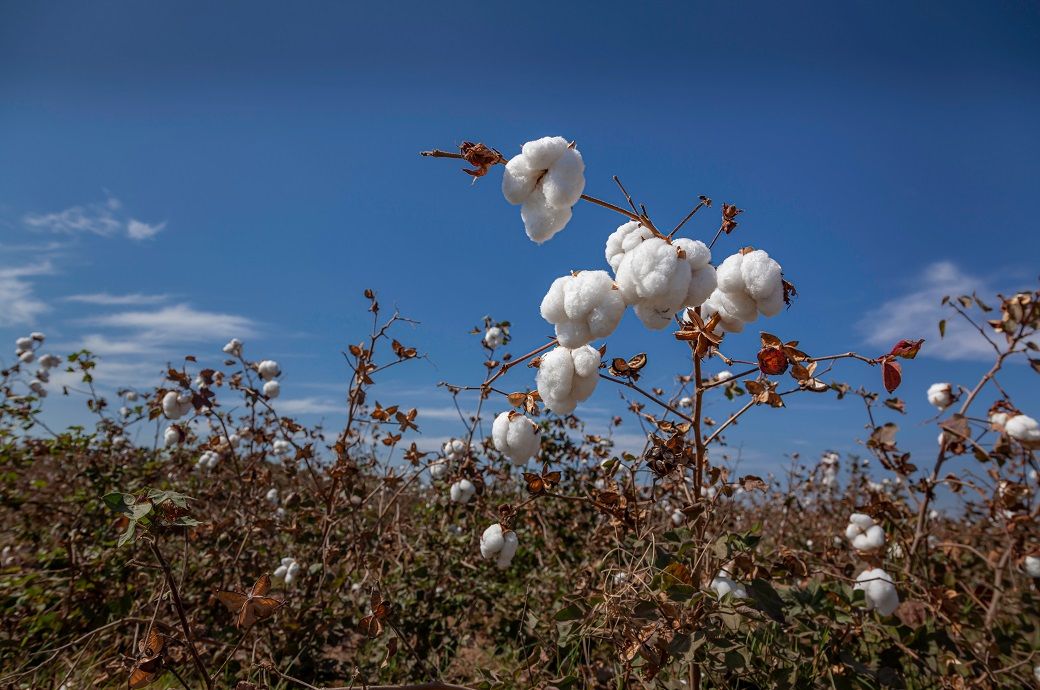
ICE December cotton futures settled at 63.51 cents per pound, down 0.08 cents. The December 2025, October 2026, and March 2027 contracts all marked new price lows on Tuesday.
US crude oil futures also settled lower after the International Energy Agency (IEA) warned of a potential global supply glut by 2026. Ongoing trade disputes further added to demand concerns.
The US dollar strengthened modestly during the session, putting additional pressure on agricultural commodities priced in dollars, including cotton.
Total trading volume for the session reached 60,151 contracts, while cleared contracts from the previous day stood at 43,552, indicating moderate but steady market activity. ICE deliverable No. 2 cotton inventories rose slightly to 16,593 bales as of October 13, up from 16,471 bales on the prior trading day.
The decline in cotton prices was attributed to trade tariffs that continued to undermine the global competitiveness of US cotton exports, as rival exporters benefitted from lower trade barriers.
Brazil’s expanding production further pressured the global market, capturing a larger share of exports previously dominated by the United States.
The ongoing US government shutdown disrupted access to important USDA data, including the monthly World Agricultural Supply and Demand Estimates (WASDE) report, leaving traders without key information and increasing market uncertainty.
The market also faced long-term demand challenges as synthetic fibre alternatives gained popularity, cutting into global cotton consumption.
US–China trade tensions escalated further after Beijing imposed new sanctions on US goods. However, a meeting between Presidents Trump and Xi is scheduled later this month to discuss easing trade restrictions.
In broader commodity markets, gold prices surged to an all-time high of $4,163.40 per ounce, reflecting heightened investor demand for safe-haven assets amid global economic uncertainty.
Wheat futures hit another new intraday contract low but later settled slightly higher, indicating short-covering and limited recovery in grain markets.
Market analysts said that soybeans are down, crude oil is down, the dollar is up a little bit — so everything is negative in the cotton market.
Brazil’s National Supply Company (CONAB) estimated the country’s 2025–26 cotton production at 4.0306 million tons, representing a 1.1 per cent year-on-year decrease from 4.0769 million tons in the previous season.
Currently, ICE cotton for December 2025 is trading at 63.63 cents per pound (up 0.12 cent), cash cotton at 61.01 cents (down 0.08 cent), the March 2026 contract at 65.22 cents (up 0.13 cent), the May 2026 contract at 66.46 cents (up 0.15 cent), the July 2026 contract at 67.64 cents (up 0.15 cent) and the October 2026 contract at 67.47 cents (down 0.20 cent). A few contracts remained at their previous closing levels, with no trading recorded today.
ALCHEMPro News Desk (KUL)
Receive daily prices and market insights straight to your inbox. Subscribe to AlchemPro Weekly!